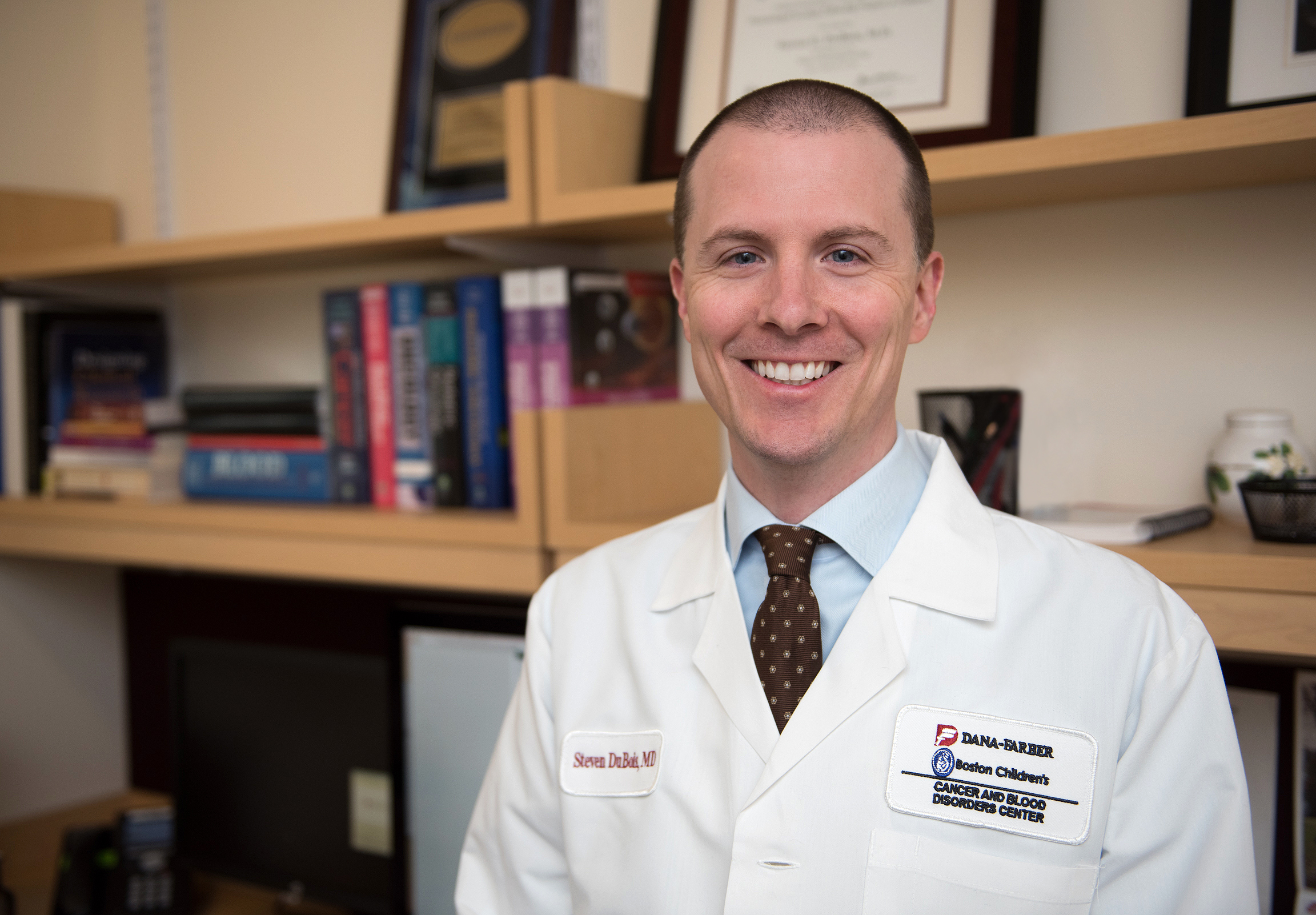
By: Trish Adkins
Children with certain types of hard-to-treat childhood cancers just got another huge dose of hope. Last week, the U.S. Food and Drug Administration (FDA) granted accelerated approval to a drug called Vitrakvi (also known as larotrectinib), making the treatment available to children with cancers that are NTRK fusion-positive.
NTRK is a gene that is present in certain types of pediatric cancers, as well as some adult cancers.
ALSF funded-researcher Dr. Steven DuBois at Dana-Farber Cancer Institute played a critical role in the research that led to the breakthrough. In a clinical trial led by Dr. DuBois over 75-percent of patients treated with larotrectinib responded positively to the drug and their tumors either shrunk or disappeared.
“Our goal is to make discoveries and disseminate these discoveries, especially when there is a therapy with such a high response rate and tolerability,” said Dr. DuBois.
The trial was held at multiple sites, including Dana-Farber Cancer Institute, which ALSF funds through its Center of Excellence (COE) program. Dr. DuBois, together with Dr. Wendy London, managed the ALSF grant funds to help sustain the infrastructure of the Developmental Therapeutics Center, collaborate with other institutions, train physician scholars in drug development and build a pediatric oncology developmental therapeutics program. The center actively participates in over 100 oncology studies at any given time.
Each of the patients in the larotrectinib trial had cancers that had the NTRK gene present. NTRK occurs when genes fuse together abnormally, resulting in the growth of abnormal cells, which become cancer. While NTRK is rare, it does occur across a range of cancer types including infantile fibrosarcoma, soft-tissue sarcoma and types of colon, lung and thyroid cancers.
Prior to the FDA approval of larotrectinib, children with this type of cancer had no effective options for treatment.
This is the second time the FDA has approved a cancer treatment based on a common genetic feature across different types of cancer rather than the specific tumor type. The approval marks a continued effort to develop treatment protocols that could work for several different types of cancer—versus the old paradigm where cancer was treated based on the type rather than the genetic marker.
In Dr. DuBois’ trial, a total of 55 patients, ranging in age from 4 months to 76 years were treated. His findings were published in the February 22, 2018 edition of the New England Journal of Medicine. The article, “Efficacy of Larotrectinib in TRK Fusion-Positive Cancers in Adults and Children,” concluded that larotrectinib, had marked durable anti-tumor activity in patients with TRK fusion-positive cancer, regardless of the age of the patient or of the tumor type. The findings led to the recent FDA approval of the drug. The full article is available here.
In addition to the support from ALSF, the trial was supported by Loxo Oncology and by grants from the National Institutes of Health, the Cancer Prevention and Research Institute of Texas and the National Center for Advancing Translational Sciences.
About the ALSF Center of Excellence grants program
ALSF supports the advancement of clinical trials through its entire research grant program. By funding all stages of research from early career to advanced laboratory studies to our clinical trial programs, ALSF ensures that the breakthrough science happens now, so children can have cures for tomorrow.
Center of Excellence grants are given to institutions over a 5-year period to support research as well as the acceleration of clinical trials through funding for infrastructure needs and training the next generation of research scholars. In addition to Dana-Farber Cancer Institute, ALSF funds Children’s Hospital of Philadelphia, University of California San Francisco and Baylor College of Medicine through the Center of Excellence grant program.
This year, the four-Center of Excellence institutions announced the opening of a multi-site phase 1 clinical trial for a drug that shows promise for reactivating a gene that typically acts as a tumor suppressor. Called p53, the gene is often missing or mutated in several types of resistant childhood cancers including lymphoma, refractory leukemia, Ewing sarcoma, rhaboid tumors, retinoblastoma, hepatoblastoma and other cancers. Subscribe to the ALSF blog for more details on this Phase 1 study.

